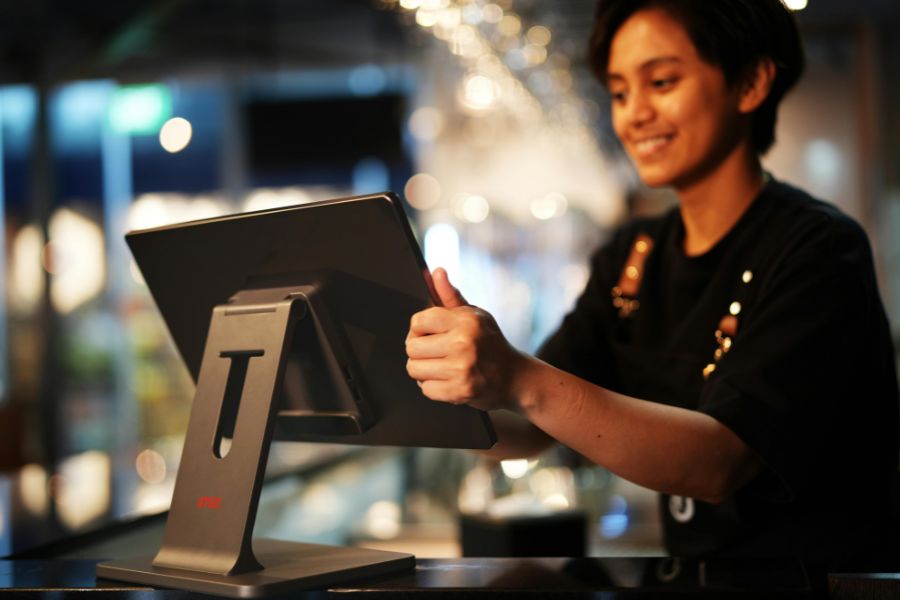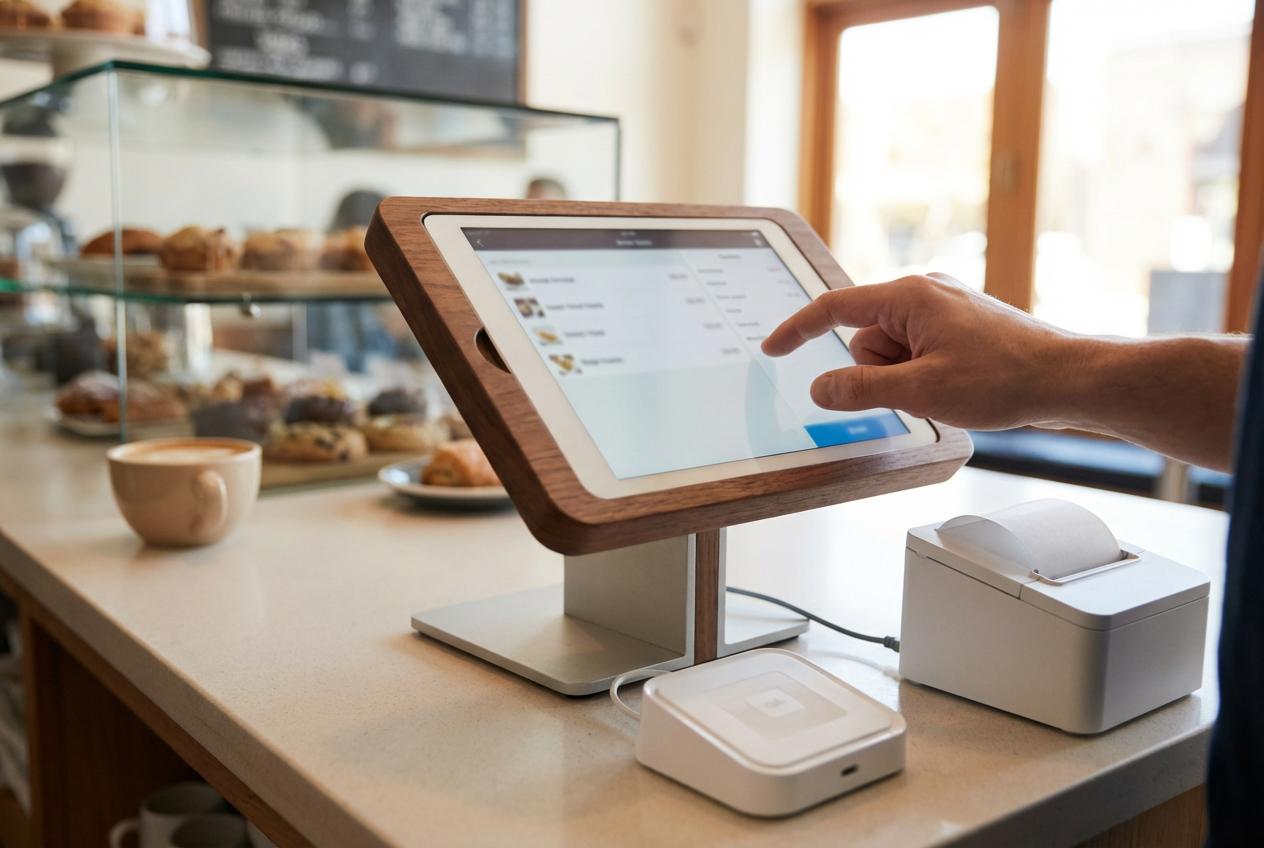When choosing a POS system, cost goes beyond the initial price tag. White label and branded POS models differ in setup, ownership, and long-term expenses. White label solutions offer full branding control and higher profit potential, but often require more resources for support and development. Branded POS systems come with faster deployment and vendor-managed maintenance, yet with limited customization. This ConnectPOS guide compares the white label POS cost and the branded POS one to help you make an informed choice.
Highlights
- White label POS offers full branding and pricing control, making it ideal for resellers and businesses aiming to build their own software identity. But they often involve higher long-term costs due to support, development, and marketing needs.
- Branded POS, in contrast, limits customization but provides a complete, ready-to-use solution backed by the vendor. These have lower upfront costs and fewer ongoing responsibilities, making them more suitable for businesses seeking simplicity.
What Is a White Label POS?
A white label POS (Point of Sale) is a system developed by a third-party provider but rebranded and sold under another company’s name.
Businesses can customize its appearance, features, and user interface to align with their brand identity. It allows companies to offer a tech solution without having to build it from scratch.
Common use cases include:
- Resellers and digital agencies that offer POS solutions under their own brand to expand services.
- Franchise chains that are looking to unify their systems while maintaining brand consistency across all locations.
- Tech startups that want to enter the POS market quickly without heavy development costs.
Most white label POS systems are cloud-based and follow a SaaS (Software as a Service) model. This gives users access to real-time updates, centralized data, and flexible deployment options.
Key benefits:
- Full branding control (logo, colors, interface layout)
- Scalability with multi-location support
- Custom feature sets tailored to industry needs
White label POS is a smart choice for businesses that want to offer a branded software experience, gain customer trust, and increase revenue through added services. They can do all of those while reducing the time and resources needed for product development.
What Is a Branded POS?
A branded POS is a point-of-sale system created, marketed, and supported by its original developer under its own name. It comes as a complete package with built-in features, standard configurations, and full technical support from the vendor.
Ideal for businesses that:
- Need a turnkey solution ready for immediate use
- Value consistent support, infrastructure, and system reliability
- Do not require ownership or branding customization
This type of POS is delivered exactly as designed by the provider. Users cannot alter its branding or claim it as their own. All system updates, security patches, and new features are handled by the vendor and rolled out to all users on the same platform.
►►► Optimal solution set for businesses: Multi store POS, Next-gen POS, Inventory Management Software (MSI), Self Service, Automation, Backorders
Key advantages:
- Fast implementation with minimal setup
- Access to expert customer support
- Ongoing updates and maintenance included
- Tested performance and stability across industries
A branded POS is well-suited for companies that want a dependable solution without managing the technical side. It allows teams to focus on daily operations while the vendor ensures the system runs smoothly and stays up to date.
Read more: Building Brand Loyalty with White Label POS Systems in Retail
Cost Breakdown: White Label POS Cost vs. Branded POS Cost
| Cost Component | White Label POS | Branded POS |
| Upfront Licensing Fees | Medium to High (initial setup + brand customization) | Low to Medium (subscription-based) |
| Monthly/Annual Fees | Recurring platform and support fees | Fixed pricing tiers |
| Development & Customization | Often included or billed separately | Limited or not customizable |
| Maintenance & Updates | Maybe your responsibility | Managed by the provider |
| Training & Support | May need to provide your own | Included in most plans |
| Ownership & Branding | Full control | No branding control |
Possible Hidden & Long-Term Costs to Consider
When choosing between white label and branded POS systems, it’s important to look beyond initial setup costs. Each option carries hidden or long-term expenses that can impact your business over time.
White Label POS cost:
- Maintenance and updates: You may be responsible for ongoing system maintenance, fixing bugs, and coordinating future development.
- Support infrastructure: Providing customer service and technical support requires staffing, tools, and training.
- Marketing and sales: Promoting the solution under your brand involves building a strategy, managing outreach, and handling onboarding.
Branded POS cost:
- Limited control: You depend on the vendor’s update schedule and feature roadmap, which may not always align with your needs.
- Vendor lock-in: Migrating to another system later can be costly or complex due to data limitations or integration challenges.
- Branding restrictions: For resellers or franchise networks, a lack of customization can weaken brand consistency.
Read more: 6 Top White Label Software Companies in 2026
ROI Considerations for Each Model
Choosing between a white label and a branded POS system impacts both short-term expenses and long-term returns.
White Label POS:
- Higher profit potential: When resold at scale, white label solutions can offer strong margins, especially if you establish a solid client base.
- Brand authority: Offering a solution under your own name helps build credibility and customer trust over time.
- Long-term value: Though upfront effort is higher, the ability to customize features and control pricing can lead to greater returns as your business grows.
Branded POS:
- Speed to market: These systems are ready to use, allowing businesses to start operations or expand locations quickly.
- Lower initial investment: Without the need to develop or manage infrastructure, you save on technical resources and upfront costs.
- Vendor-backed reliability: Ongoing support, regular updates, and tested performance reduce maintenance burdens and risk.
In short, white label POS suits those building long-term value and brand presence, while branded POS is ideal for those needing fast, low-risk deployment.
When to Choose White Label vs. Branded POS?
The decision between a white label and a branded POS system depends on your business structure, goals, and available resources. Each model serves a different need and offers distinct benefits.
Choose a White Label POS if:
- You are a software vendor, agency, or franchise network looking to offer your own POS solution.
- Full control over branding, user experience, and feature development is important to your business.
- You have the resources to manage support, updates, and marketing, or plan to scale and build long-term value under your own brand.
This model is ideal for those who want to position themselves as a tech provider or maintain consistency across multiple business locations.
Choose a Branded POS if:
- You need to launch quickly with a proven, stable solution.
- Your team values expert support and doesn’t want to handle the technical side of system management.
- You prefer predictable updates, ongoing maintenance, and vendor-led infrastructure.
This option is well-suited for retailers, restaurants, or service providers focused on operations rather than product development.
ConnectPOS’s White Label Program
The ConnectPOS White Label Program allows you to offer a powerful, custom POS system under your own brand. You maintain full brand control, while we provide the advanced technology and infrastructure.
- Build your brand – You can enhance your company’s offerings by delivering a consistent, professional brand experience across all customer touchpoints. This strengthens client loyalty and positions your business as a trusted provider.
- Control your profit – You have the flexibility to set your own pricing plans and packages to fit your market strategy. With exclusive licensing discounts, you can increase your profit margins and maintain a competitive edge.
- Streamlined onboarding – Our program includes a one-time onboarding fee, with client activation completed in as little as two weeks. We support the entire setup process, including account configuration, initial training, and technical assistance.
- Industry-tailored solution – ConnectPOS is built to support high-risk industries such as Cannabis, Firearms, Vapes, and Adult products. The system includes features tailored to industry compliance and operational needs.
- Flexible customization – Our modular design allows you to customize the POS to your business requirements and make real-time adjustments as needed.
- Advanced connectivity – The open API structure supports smooth integration with third-party software, expanding your solution beyond standard POS functions.
- In-depth training and support – Your team receives comprehensive product training and unlimited access to a detailed knowledge base. Dedicated account managers and developers provide fast, personalized technical support when needed.
- Enhanced brand presence – We provide marketing and sales materials customized with your brand guidelines. You’ll also receive support to promote your brand across your website, social media, and email channels.
Read more: White Label POS Reseller: How to Work with One & Gain Benefits?
Final Thoughts
Both white label and branded POS systems offer distinct advantages depending on your business goals, resources, and long-term vision. White label POS cost might be more, but it gives you full branding control and higher revenue potential. Branded POS provides a reliable, low-risk solution with expert support, though with less flexibility in customization.
If you’re ready to explore a flexible POS solution tailored to your needs, contact ConnectPOS today to learn more about our white label and branded programs.
FAQs: White Label POS vs. Branded POS
Dear a white label POS cost more than a branded POS in the long run?
Not necessarily. While white label POS may require more upfront setup and involvement, it can be more cost-effective over time, especially if resold at scale. By setting your own pricing and controlling support processes, you can reduce dependency on third-party vendors and generate higher profit margins, making it a more economical choice in the long run.
Can I fully customize the interface of a white label POS?
Yes. White label POS solutions typically allow full customization of the user interface, including branding, layout, and features. This flexibility lets you tailor the system to match your business identity and customer needs.
Who provides support and updates in a white label setup?
In most white label setups, the responsibility for support and updates falls on the reseller or provider offering the solution under their brand. However, some white label programs, like those from ConnectPOS, offer backend technical support and training to assist your team.
►►► Optimal solution set for businesses: Shopify POS, Magento POS, BigCommerce POS, WooCommerce POS, NetSuite POS, E-Commerce POS



